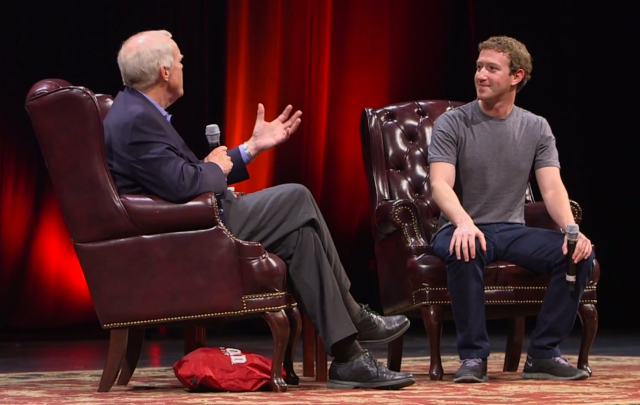In case you missed it, Princeton researchers are predicting Facebook’s rapid growth will eventually come to a quick and inglorious end, much like an infectious disease that spreads rapidly and suddenly expires. The researchers are using the analogy of diseases to model the life cycles of social media. According to the research, users will lose interest in the social network platform over time as their peers lose interest. Ouch. Facebook is having none of that and turned to sarcasm in order to debunk the research report. If you buy into the Facebook rebuttal, Princeton is on their way to zero-enrollment.
“This trend suggests that Princeton will have only half its current enrollment by 2018, and by 2021 it will have no students at all, agreeing with the previous graph of scholarly scholarliness. Based on our robust scientific analysis, future generations will only be able to imagine this now-rubble institution that once walked this earth. While we are concerned for Princeton University, we are even more concerned about the fate of the planet — Google Trends for “air” have also been declining steadily, and our projections show that by the year 2060 there will be no air left”.
The Princeton study examined at Google Trends data for Myspace and Facebook, using the former to predict the demise of the social network. As Facebook’s Data team points out, the analysis used is one-dimensional, and makes Princeton look silly. More importantly its lack of robustness gave Facebook ammunition in its comeback.
Facebook’s data team members, Mike Develin, Lada Adamic and Sean Taylor, employed the same methods as the Princeton research team to show that Princeton was facing a decline in undergraduates and would have none at all by 2021.
‘Using the same robust methodology featured in the paper, we attempted to find out more about this ‘Princeton University’ – and you won’t believe what we found!
‘In keeping with the scientific principle ‘correlation equals causation,’ our research unequivocally demonstrated that Princeton may be in danger of disappearing entirely.’
They also used the same logic to show the world will run out of air by 2060. ‘We don’t really think Princeton or the world’s air supply is going anywhere soon,’ they said. ‘We love Princeton (and air). ‘As data scientists, we wanted to give a fun reminder that not all research is created equal – and some methods of analysis lead to pretty crazy conclusions’.
Agreed. Though the original analysis was not comprehensively debunked. Facebook did win however on the PR front. “You come at the king of social media, you best not miss,” wrote Chris Taylor on Mashable. While CNET called it “the comeback of all comebacks.” Tongue in Cheek comebacks aside, Facebook’s CFO David Ebersman previously admitted : “We did see a decrease in daily users, specifically among younger teens.”

Hayden Richards is Contributor of IntelligentHQ. He specialises in finance, trading, investment, and technology, with expertise in both buy-side, sell-side. Contributing and advising various global corporations, Hayden is a thought leader, researching on global regulatory subjects, digital, social media strategies and new trends for Businesses, Capital Markets and Financial Services.
Aside from the articles, interviews and content he writes for IntelligentHQ, Hayden is also a content curator for capital markets, analytic platforms and business industry emerging trends. An avid new media explorer Hayden is driven by a passion for business development, innovation, social business, Tech Trading, payments and eCommerce. A native Trinidadian, Hayden is also a veteran, having served with the Royal Air Force Reserves for the past 10 years.
Follow Hayden on Twitter @HaydenARichards, linkedin.com/haydenhrichards and http://www.scoop.it/u/hayden-richards






























